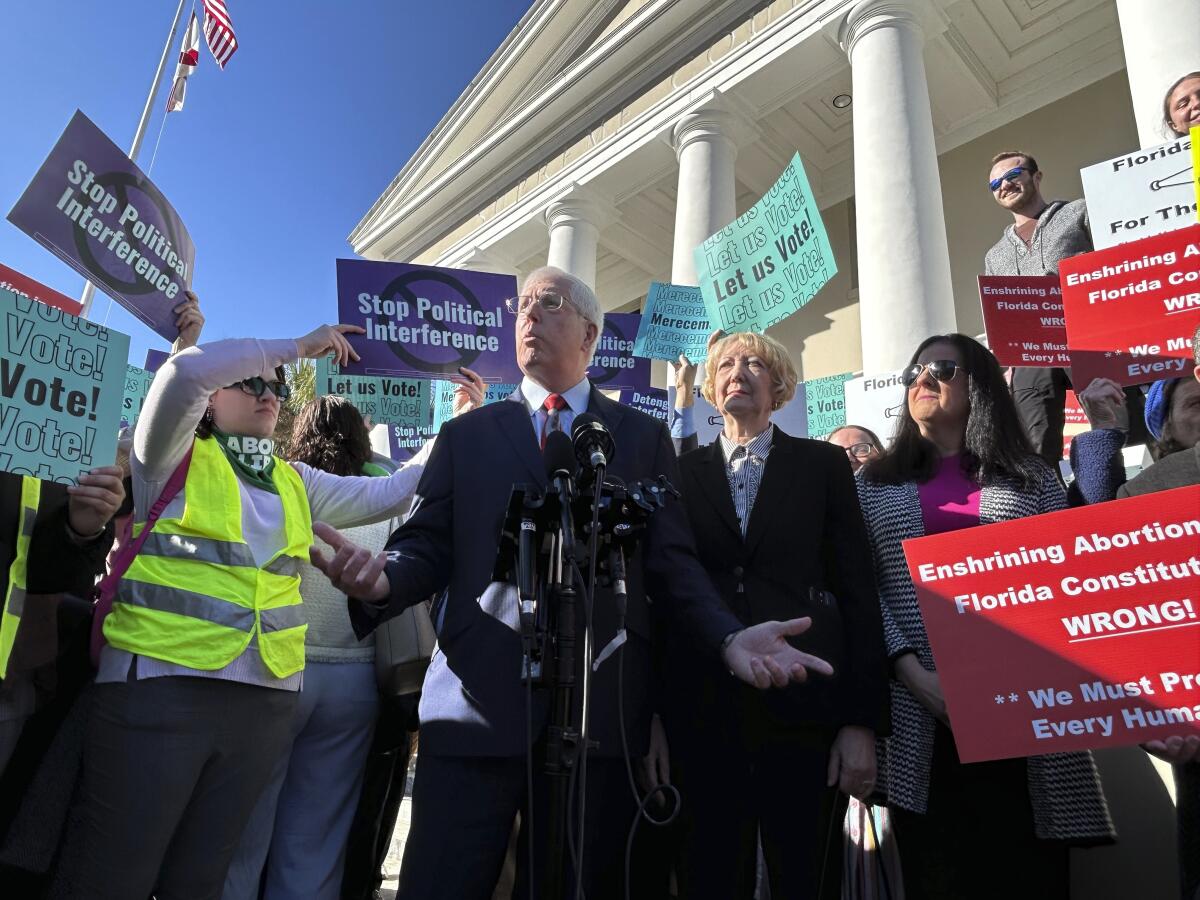Florida asks state Supreme Court to keep abortion rights amendment off November ballot

TALLAHASSEE, Fla. — Lawyers trying to keep an abortion rights measure off the Florida ballot have told the state Supreme Court that the proposed amendment is deceptive, and that voters won’t realize just how far it will expand access to the procedure.
But the justices, at a hearing Feb. 7, seemed to think the proposed ballot question isn’t so much a wolf in sheep’s clothing, but rather a clear effort to keep the state from restricting most abortions.
“This is a wolf coming as a wolf,” said Chief Justice Carlos Muniz, one of five appointees of Republican Gov. Ron DeSantis on the seven-member court. “The people of Florida aren’t stupid. They can figure it out.”
The proposed amendment says “no law shall prohibit, penalize, delay, or restrict abortion before viability or when necessary to protect the patient’s health, as determined by the patient’s healthcare provider.” It provides for one exception, which is already in the state constitution — that parents must be notified before their minor children can get an abortion.
Lawyers for Atty. Gen. Ashley Moody and the religious freedom group Liberty Counsel told justices it would essentially ban any restrictions whatsoever.
Proponents of the proposed amendment say the language of the ballot summary and the proposed amendment are concise and that Moody is playing politics instead of letting voters decide whether to protect access to abortions.
The group Floridians Protecting Freedom gathered nearly 1 million voter signatures, well more than the 891,523 needed to make the ballot. The court has made clear that its role is not to rule on the content of the proposed amendment, but rather, whether it is properly focused on a single subject, and whether voters will understand what they’re voting on.
If the question is allowed on the ballot, 60% of voters would have to approve it.
More to Read
Get the L.A. Times Politics newsletter
Deeply reported insights into legislation, politics and policy from Sacramento, Washington and beyond. In your inbox three times per week.
You may occasionally receive promotional content from the Los Angeles Times.










